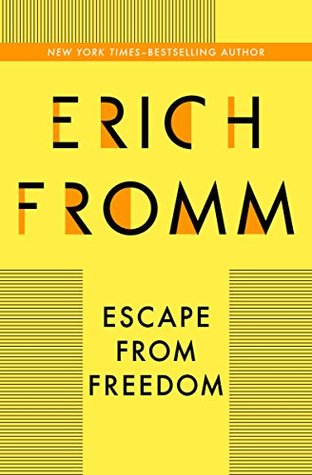More on this book
Community
Kindle Notes & Highlights
In other words, society has not only a suppressing function—although it has that too—but it has also a creative function. Man’s nature, his passions, and anxieties are a cultural product; as a matter of fact, man himself is the most important creation and achievement of the continuous human effort, the record of which we call history.
These and many other strivings and fears to be found in man develop as a reaction to certain life conditions. They are not particularly flexible, for once they have become part of a person’s character, they do not easily disappear or change into some other drive. But they are flexible in the sense that individuals, particularly in their childhood, develop the one or other need according to the whole mode of life they find themselves in.
To feel completely alone and isolated leads to mental disintegration just as physical starvation leads to death.
Religion and nationalism, as well as any custom and any belief however absurd and degrading, if it only connects the individual with others, are refuges from what man most dreads: isolation.
Freedom is here used not in its positive sense of “freedom to” but in its negative sense of “freedom from,” namely freedom from instinctual determination of his actions.
From the beginning of his existence man is confronted with the choice between different courses of action. In the animal there is an uninterrupted chain of reactions starting with a stimulus, like hunger, and ending with a more or less strictly determined course of action, which does away with the tension created by the stimulus. In man that chain is interrupted. The stimulus is there but the kind of satisfaction is “open,” that is, he must choose between different courses of action.
The act of disobedience as an act of freedom is the beginning of reason.
We see that the process of growing human freedom has the same dialectic character that we have noticed in the process of individual growth. On the one hand it is a process of growing strength and integration, mastery of nature, growing power of human reason, and growing solidarity with other human beings. But on the other hand this growing individuation means growing isolation, insecurity, and thereby growing doubt concerning one’s own role in the universe, the meaning of one’s life, and with all that a growing feeling of one’s own powerlessness and insignificance as an individual.
There is only one possible, productive solution for the relationship of individualized man with the world: his active solidarity with all men and his spontaneous activity, love and work, which unite him again with the world, not by primary ties but as a free and independent individual.
However, if the economic, social and political conditions on which the whole process of human individuation depends, do not offer a basis for the realization of individuality in the sense just mentioned, while at the same time people have lost those ties which gave them security, this lag makes freedom an unbearable burden. It then becomes identical with doubt, with a kind of life which lacks meaning and direction. Powerful tendencies arise to escape from this kind of freedom into submission or some kind of relationship to man and the world which promises relief from uncertainty, even if it
...more
A spirit of restlessness began to pervade life toward the end of the Middle Ages. The concept of time in the modern sense began to develop. Minutes became valuable; a symptom of this new sense of time is the fact that in Nürnberg the clocks have been striking the quarter hours since the sixteenth century.
The other problem is to study the psychological motives, not of the creator of a doctrine, but of the social group to which this doctrine appeals. The influence of any doctrine or idea depends on the extent to which it appeals to psychic needs in the character structure of those to whom it is addressed. Only if the idea answers powerful psychological needs of certain social groups will it become a potent force in history.
Doubt is the starting point of modern philosophy; the need to silence it had a most powerful stimulus on the development of modern philosophy and science. But although many rational doubts have been solved by rational answers, the irrational doubt has not disappeared and cannot disappear as long as man has not progressed from negative freedom to positive freedom. The modern attempts to silence it, whether they consist in a compulsive striving for success, in the belief that unlimited knowledge of facts can answer the quest for certainty, or in the submission to a leader who assumes the
...more


